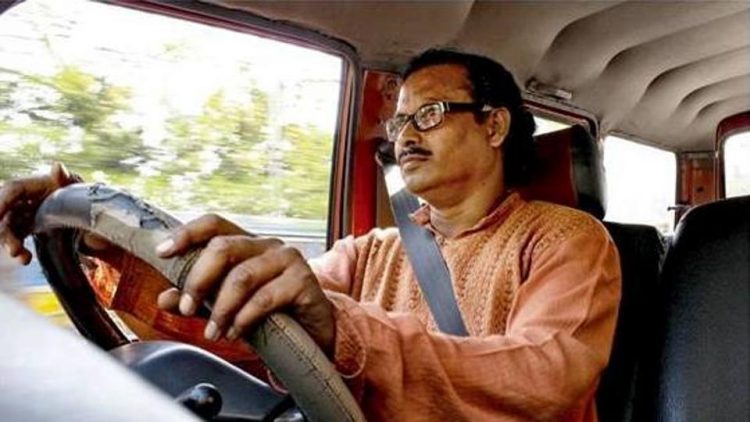
Audio By Carbonatix
An Indian driver has received the Manush Sanman award for not honking once in the past 18 years.
It may seem a strange award, but India is well known for the chaos of its roads, and the typical driver’s almost constant use of the car horn. Dipak Das, a Kolkata-based driver, believes that India can change this and eventually achieve peaceful, quiet roads.
Honking is a huge part of the driving experience in India, as people pretty much use them as an alternative to side mirrors. Some cars don’t even have side mirrors, while others have them folded, as to extend them outward could lead to collisions with other vehicles.
Instead, Indian motorists honk incessantly to avoid collisions on the road where traffic is chaotic and so dense that cars appear just about to bump into each other at all times.
Drivers honk to indicate that they’re about to make a pass or to indicate that another driver is too close. This creates unbearable noise pollution that many consider hugely detrimental to Indian society.

“People need to be educated on how bad this noise pollution is,” motorist Vijay Agarwal told Forbes, “It’s all about drivers being impatient.”
Dipak Das, however, is not one of those drivers. He has worked as a chauffeur for many Indian celebrities, such as table maestro Pandit Tanmoy Bose, and guitarist Kunal, among others, and they have all praised his efforts to reduce noise pollution. The organizers of Manush Mela (Humanity Fair) have verified his atypical driving etiquette, and have recently honored him with the Manush Sanman award for his inspiring efforts.
Das is a firm believer in a no-horn policy and hopes that his behavior will help inspire other drivers to use the horn less frequently. He hasn’t used the car honk in 18 years, and hopes others will follow his example.
“I think if a driver follows this no-horn policy, he will become more alert while driving. If a driver has proper sense of space, speed, and timing, he or she need not use horn,” he said to Hindustan Times adding that when passengers ask him to use the horn, he politely declines and tells them that it isn’t a solution to the problem. His car carries a small placard featuring the saying, ‘Horn is a concept. I care for your heart’.
Das, who maintains his firm no-honking policy even during long trips to Darjeeling or Sikkim, hopes that someday Kolkata will become a “no-honking city.”
“It is not something that cannot be achieved or very difficult to achieve. What is required for this is administrative and political goodwill,” Das said.
The Manush Mela honors citizens who are doing something unique and valuable for society. Sudipa Sarker, one of the 2017 organizers of the event, told Hindustan Times that Das was well known and appreciated by individuals and organizations for whom he had worked, making him a natural choice for the award.
Latest Stories
-
Adom FM’s ‘Strictly Highlife’ lights up La Palm with rhythm and nostalgia in unforgettable experience
2 hours -
OMCs slash fuel prices as cedi gains
3 hours -
Around 40 dead in Swiss ski resort bar fire, police say
4 hours -
AFCON 2025: Aubameyang and Nsue make history among oldest goalscorers
5 hours -
Ghana is rising again – Mahama declares
6 hours -
Firefighters subdue blaze at Accra’s Tudu, officials warn of busy fire season ahead
6 hours -
Luv FM’s Family Party In The Park ends in grand style at Rattray park
7 hours -
Mahama targets digital schools, universal healthcare, and food self-sufficiency in 2026
7 hours -
Ghana’s global image boosted by our world-acclaimed reset agenda – Mahama
7 hours -
Full text: Mahama’s New Year message to the nation
7 hours -
The foundation is laid; now we accelerate and expand in 2026 – Mahama
7 hours -
There is no NPP, CPP nor NDC Ghana, only one Ghana – Mahama
7 hours -
Eduwatch praises education financing gains but warns delays, teacher gaps could derail reforms
8 hours -
Kusaal Wikimedians take local language online in 14-day digital campaign
8 hours -
Stop interfering in each other’s roles – Bole-Bamboi MP appeals to traditional rulers for peace
9 hours

